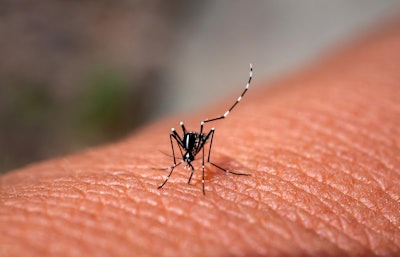
West Nile virus (WNV), a viral disease in people spread by infected mosquitos, was detected at a New Castle County, Delaware, sentinel chicken station on July 19, the Delaware Department of Natural Resources and Environmental Control (DNREC) announced on July 27.
This is the first reported case in the state in 2021.
DNREC’s Mosquito Control section collects blood samples from 20 outdoor sentinel chicken stations statewide each week from early July into October. The samples are tested for the presence of WNV and Eastern Equine Encephalitis (EEE) antibodies by the Delaware Public Health Laboratory.
Sentinel chickens bitten by infected mosquitos develop antibodies against the viruses but show no other symptoms.
Preventing WNV and EEE
Birds are reservoir hosts for both WNV and EEE, meaning that the viruses typically cycle only between mosquitos and birds. However, the two viruses can be transmitted to humans and other mammals through infected mosquitos, typically horses in the case of EEE.
WNV is the leading cause of mosquito-borne disease in the continental U.S., according to the Center for Disease Control and Prevention (CDC). The virus causes a mild fever and other symptoms in approximately one in five people infected and a more serious illness in one in 150.
No human cases have been detected this year.
Mosquito-transmitted diseases are most prevalent during the summer months, so precautions should be taken until colder autumn temperatures in mid-October or later, DNREC said. This includes:
- Wearing long-sleeved shirts and long pants when outdoors in mosquito-prone areas.
- Applying insect repellent containing 10 to 30% diethyl toluamide (DEET) in accordance with label instructions.
- Avoiding mosquito-infested areas and times of peak mosquito activity around dusk, dawn and at night.
- The removal or outdoor items that collect water, such as discarded buckets or containers, uncovered trashcans, stagnant birdbaths, unprotected rain barrels or cisterns, old tires, upright wheelbarrows, flowerpot liners, depressions in boat tarps, clogged rain gutters, corrugated downspout extenders and unused swimming pools.
In addition, the Mosquito Control section may initiate spraying to reduce mosquito populations in areas where the virus is detected.


















